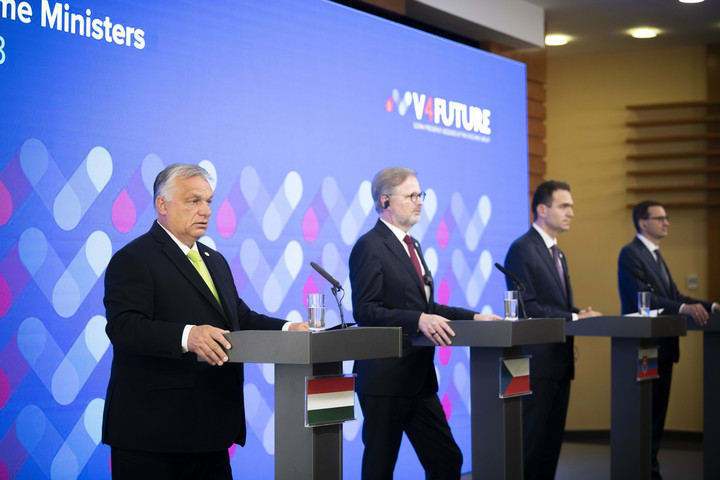There is a solution to migration, but the EU does not want to implement it, Prime Minister Viktor Orbán said at a joint press conference in Bratislava on Monday after a meeting of the prime ministers of the Visegrád Four group, which consists of Hungary, Slovakia, the Czech Republic and Poland.
The Hungarian prime minister said that Hungary’s position on illegal migration remains unchanged. According to him, the solution, which is also laid down in Hungarian law, is that if someone submits an application for entry to the territory of the EU and the application has not been assessed, that person must be physically outside EU borders.
“If we were to say that only those who have undergone the procedure and have received permission from a member state to enter the EU would be allowed to do so, we would be over this mess,” Orbán said. He added that the EU is not willing to take this decisive step, and unfortunately, the European Commission’s new migration proposal has not achieved this goal either.
Hungary’s prime minister said that the money earmarked by the European Commission for the fight against migration is ridiculous.
“I have to say that the whole proposal as it stands from the Commission is frivolous and, in Hungary’s view, in this form it is unsuitable for negotiation,” Orbán said, adding that the EU commission must make a “serious proposal.”
The EU’s new migrant pact will allow Brussels to force migrant quotas on member states like Hungary and Poland. If the states reject the migrants, they will be required to pay up to €20,000 per rejected migrant, which could quickly add up to billions of euros over the years. Both Hungary and Poland, along with many conservative European parties, have protested the new law.
At the V4 summit, in addition to the options for tackling illegal immigration, other topics were also discussed, including the situation in Ukraine and its consequences, the Western Balkans and the EU’s Green Deal.
Regarding the Western Balkans, Orbán said he had visited several countries in the region in the past week. He was pleased to hear that the common view there is that the accession process of the Balkan countries to the EU should be sped up.
He added that “we are at a time when much of the attention is focused on Ukraine, but there are other problems. Attention must also be paid to the Balkans, where there are growing tensions that require a sophisticated, complex solution; the EU’s handling of this is fraught with miscalculations and has so far failed.”
He emphasized the need for a Balkans policy that gives a clear membership perspective to the peoples living there. He pointed out that it is unacceptable to create the feeling that Ukraine can join the EU before the countries that have been candidates for years.






